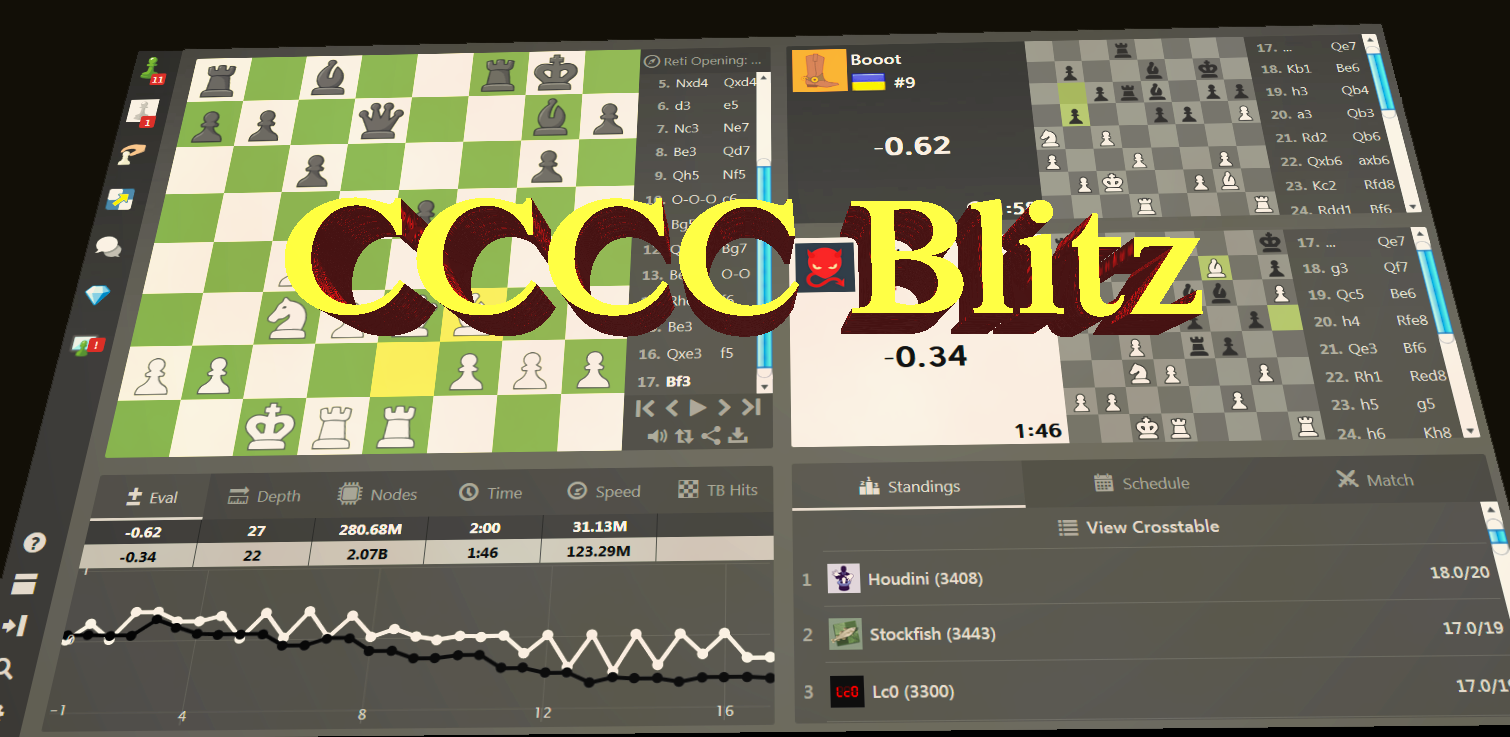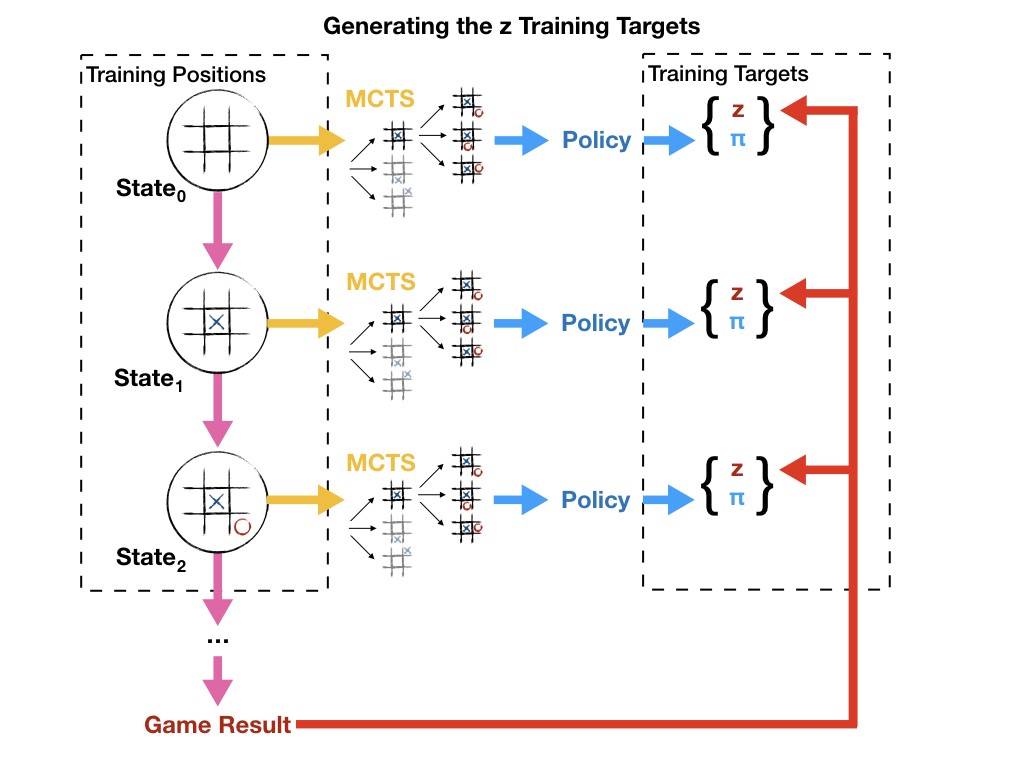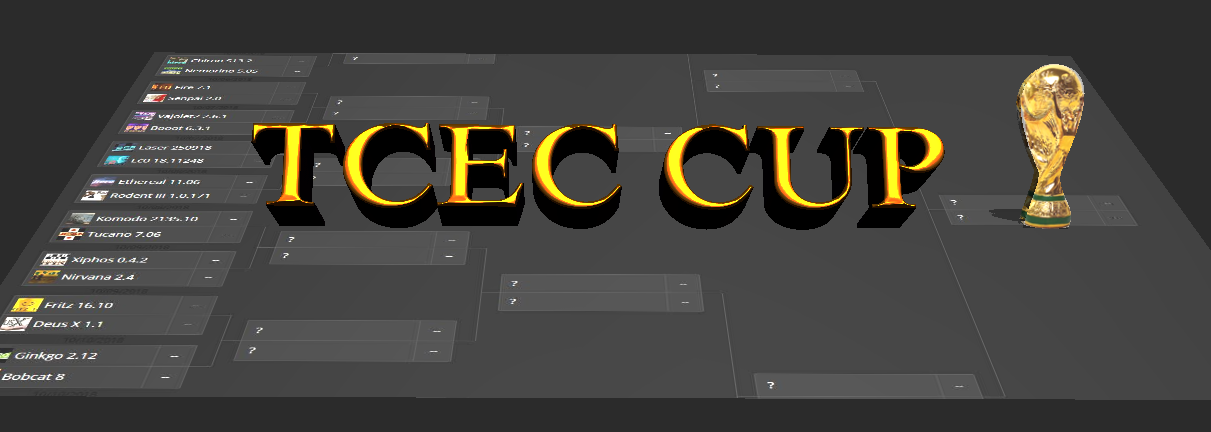Leela Chess Zero Blog
v0.19.0 is finally out of “release candidate” status, and now is fully
released!
It has been quite a long bugfixing run with 5 release candidates, but now all
known issues seem to be resolved.
The play.lczero.org web site where everyone could quickly play Lc0 online is currently down.
But even while it doesn’t work, there are some options to play Leela online.
The easiest way is to play on lichess.
You can pick one of the Leela Chess Zero bots:
The release candidate of a new Leela version has been released:
(v0.19.0-rc1)
Upd: we are releasing v0.19.0-rc2 immediately as due to mistake in the
release procedure rc1 reported its version as v0.19.0-dev rather than
v0.19.0-rc1

If you are new to Leela (Lc0) Chess and have begun contributing games either using Google Cloud or some other online service or your own home computer, you may be wondering where all those games go and how training of Leela happens.

Leela in a classic drama style, promoted in TCEC Cup Semi-Finals and
it will face Stockfish today!
While in CCCC blitz tournament she is still at 3rd place ahead of
Komodo, Ethereal and Fire and behind Stockfish and Houdini.

CCCC blitz tournament is running and till now Leela is having a good performance being steadily on the top 3.
Conditions for the tournament are:
• 33 engines play a 4x Round Robin tournament with each engine that will
play each other 4 times(2 with black and 2 with white) in a total of 128 games
per engine, with no opening books or predefined positions used.
This implies a problem though as an engine will play each other twice with
white and twice with black so the question becomes: how variety of play will
be assured to not have duplicate games? Obviously they will rely on the non
determinism of multithreaded search(traditional engines that use more than 1
threads/cores are not deterministic, even Leela that uses more than 1 CPU
threads it’s not(Leela mainly uses GPU for its search, but uses also CPUs)).
This is of course not that wise decision and they should use predefined
positions for the second part of the Round Robin.

Chess is a game where there are 3 distinct results. White wins or black wins or it is a draw and nobody wins. Draw can achieved in many ways in Chess. These are:

_
Article by Cyanogenoid, member of Leela Chess Zero development team ._
Recently, Oracle investigated training the value head against not the game outcome z, but against the accumulated value q for a position that is obtained after exploring some number of nodes with UCT [[Lessons From AlphaZero: Improving the Training Target.](https://medium.com/oracledevs/lessons-from- alphazero-part-4-improving-the-training-target-6efba2e71628)]. In this post, we describe some of the experiments with Knowledge Distillation (KD) and relate them to training against q.

Leela after 6 consecutive draws in the series of games against Laser(division 1 engine) she won last 2 games so she promoted to next round where she will face Ethereal(premier division engine) that beat Rodent(division 4 engine) easily with 5-0 and promoted too. The games against Ethereal will probably take place on this Sunday.

When first Chess engines were born were very weak. First real Chess
program(even though in 1912 there was a King Rook versus King solver and in
1951 Turing wrote only in paper a Chess program) was written in 1951 by Alan
Turing’s colleague, Dietrich Prinz, but it was not able to play a whole game
but could only solve small “mate in 2” problems.
The interest in computer Chess was growing and more and more researchers in
artificial intelligence(AI) used Chess as a platform to showcase their
progress on AI. As hardware has started to evolve more and more, many
researchers started to be able to use the already known algorithm, that has
proved to be the backbone for future Chess engines: the Minimax algorithm
, that was invented many years before by the pioneer in so many fields, John
Von Neumann.
